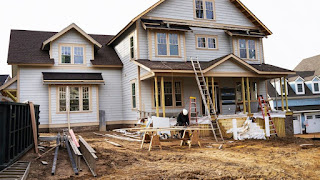Real estate development mistakes you should avoid
There are a lot of businesses that can be categorized as “high-risk, high-reward.” One such business is real estate development. Unlike other endeavors, a real estate business doesn’t rely much on equipment, logistics, or other hardware. More often than not, you can run your own real estate development firm from a small office or even your home.
According to Eugene Bernshtam, what is necessary in real estate is capital, knowledge, charisma, and passion for the business. And while knowledge can be acquired with experience, there is very little room for error in real estate development as it is often costly. Here is a couple of common real estate development mistakes you should avoid.
Underestimating expenses
Looks can be deceiving, especially when it comes to real estate development. What may look like a well-priced home could turn into a nightmare buy upon further inspection. Jumping the gun without consulting a proper appraiser could shackle your project with repair costs that you originally hadn’t allotted budget for. Likewise, people just starting out in real estate development could easily underestimate the expenses of furnishing a house, repairing structural damages, or even property taxes.
Lack of research
Most people try to know everything there is to know about a product before they purchase it, whether it be something small like a wristwatch or something big like a car. The same idea applies to real estate development. Eugene Bernshtam states that real estate developers should do their due diligence before settling for a property. Aside from knowing everything there is to know about the property, find out what you can about the neighborhood, the land developer involved in the deal, and how nearby properties can affect the value of your would-be acquisition.
Eugene Bernshtam is a real estate developer at Avalon Holdings, LLC and its affiliated entities. Born in Eastern Europe, he graduated from the Loyola School of Business with a bachelor's degree in finance and earned both series 7 and 63 certification to sell investment securities. For more reads on real estate, visit this blog.
 |
Image source:
five-stargroup.com
|
 |
Image source:
realtor.com
|
Underestimating expenses
Looks can be deceiving, especially when it comes to real estate development. What may look like a well-priced home could turn into a nightmare buy upon further inspection. Jumping the gun without consulting a proper appraiser could shackle your project with repair costs that you originally hadn’t allotted budget for. Likewise, people just starting out in real estate development could easily underestimate the expenses of furnishing a house, repairing structural damages, or even property taxes.
Lack of research
Most people try to know everything there is to know about a product before they purchase it, whether it be something small like a wristwatch or something big like a car. The same idea applies to real estate development. Eugene Bernshtam states that real estate developers should do their due diligence before settling for a property. Aside from knowing everything there is to know about the property, find out what you can about the neighborhood, the land developer involved in the deal, and how nearby properties can affect the value of your would-be acquisition.
Eugene Bernshtam is a real estate developer at Avalon Holdings, LLC and its affiliated entities. Born in Eastern Europe, he graduated from the Loyola School of Business with a bachelor's degree in finance and earned both series 7 and 63 certification to sell investment securities. For more reads on real estate, visit this blog.



Comments
Post a Comment